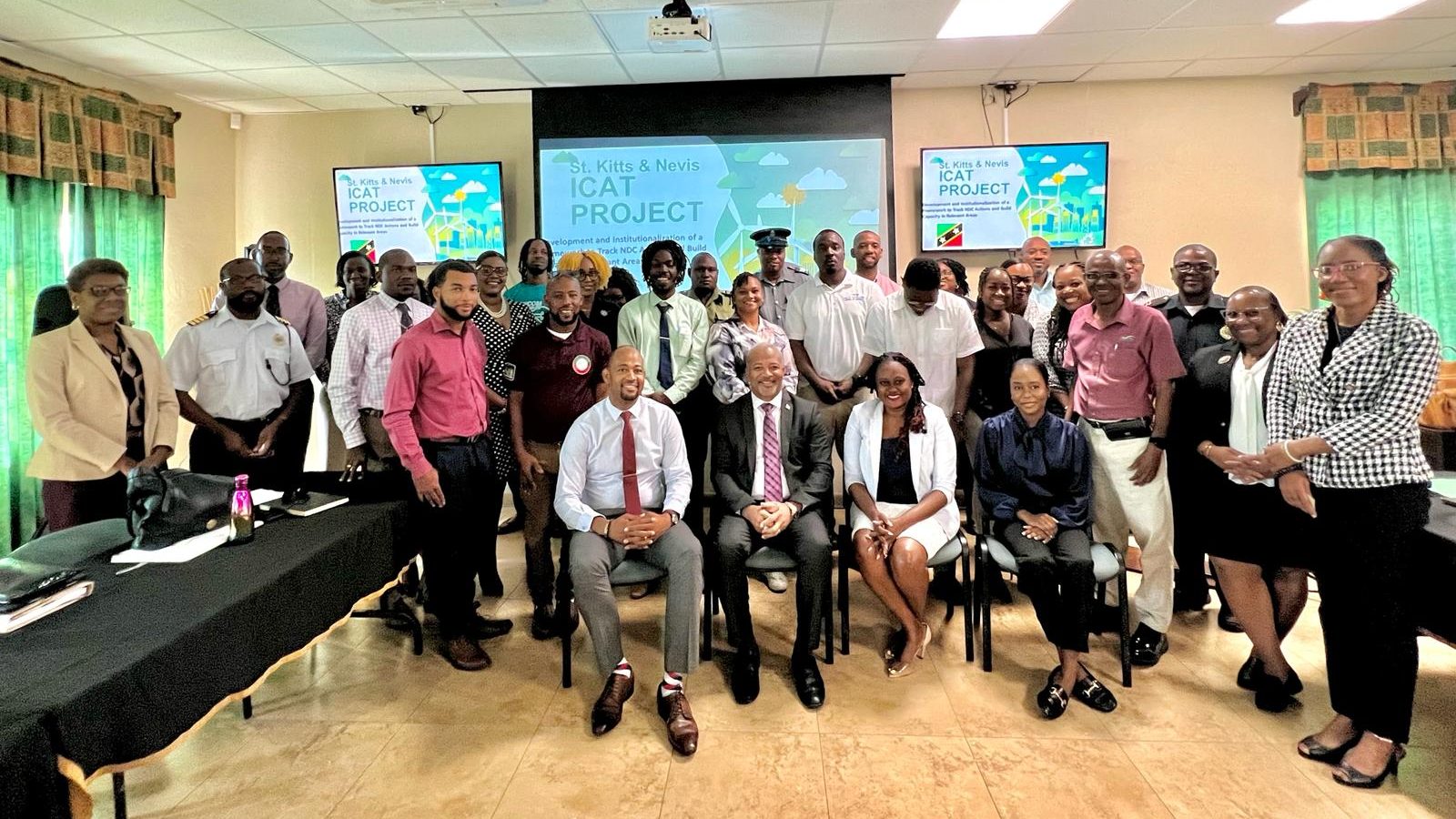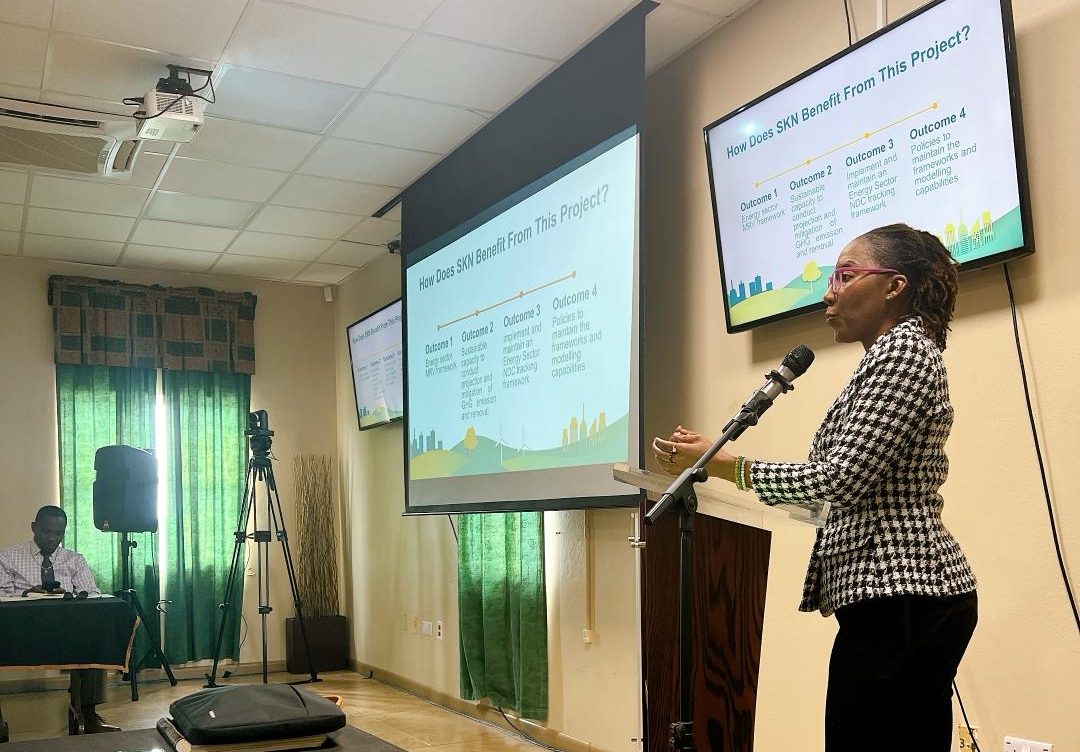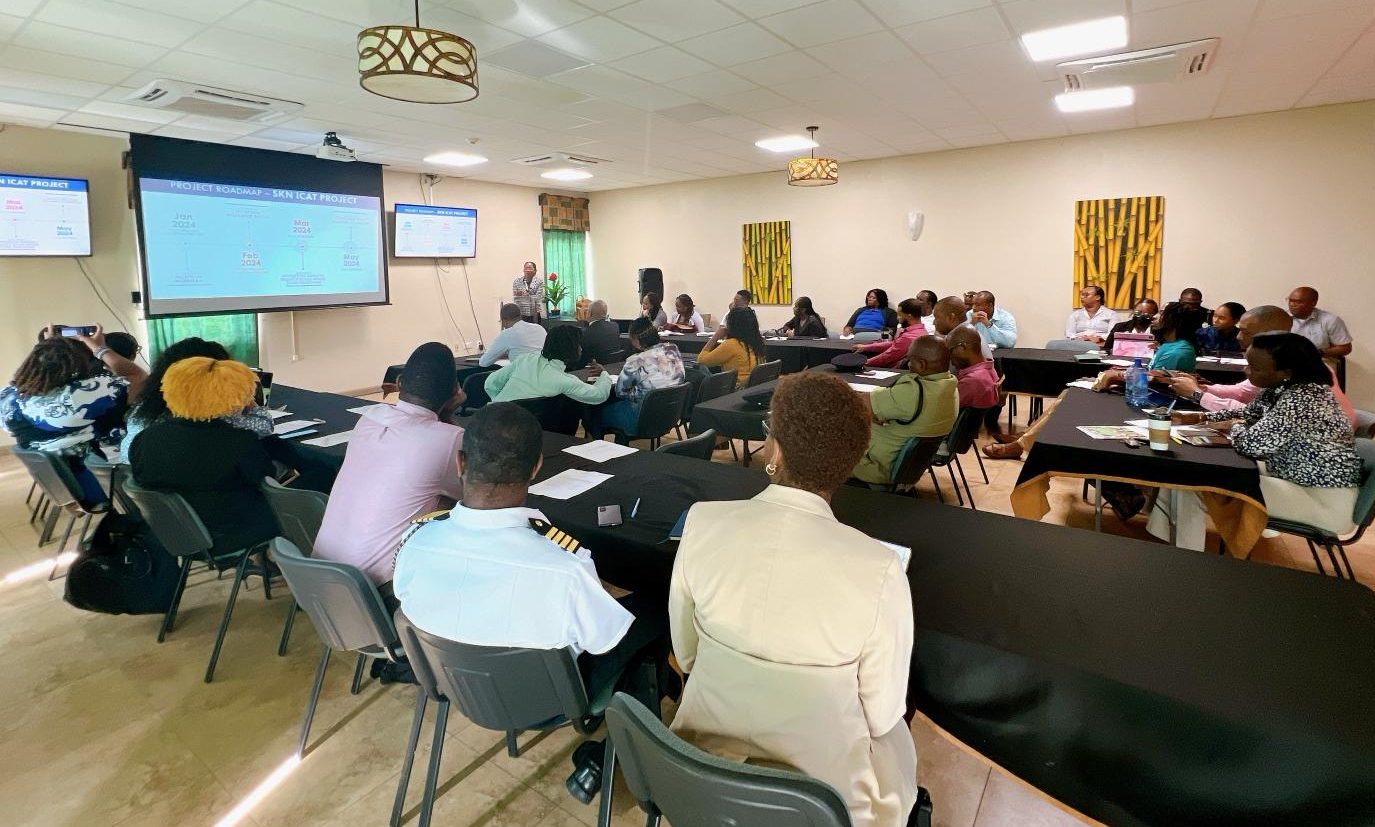Article published on climateactiontransparency.org and reposted with no changes.
An inception workshop was organized in Basseterre, St. Kitts and Nevis, on 23 January 2024, to introduce and launch a new ICAT project, focused on enhancing transparency of climate action in the energy sector.
Opening remarks were made by the Minister of Sustainable Development, Environment and Climate Action and Constituency Empowerment, Dr. Joyelle Clarke, and the Nevis Minister on Climate Action, Spencer Brand. The director of ICAT, Dr. Henning Wuester, delivered an opening statement which emphasized the importance of transparency in climate action.
“Transparency is the backbone of the Paris Agreement. Without good data, actions to meet commitments cannot be adequately planned, implemented or measured,” highlighted Dr. Wuester.
Attendees representing various sectors of St. Kitts and Nevis, including agriculture, energy, sustainable development, tourism, transport, and education, joined the discussion. The participants delved into the country’s needs, their expectations for the project’s outcomes, and the next steps to be taken in implementation.
The St. Kitts and Nevis Ministry of Sustainable Development, Environment, Climate Action and Constituency Empowerment is leading the project implementation, with support from international experts from the Greenhouse Gas Management Institute and in collaboration with the Caribbean MRV Hub.

Tackling national priorities: the energy sector
ICAT will work with St. Kitts and Nevis to develop a measurement, reporting and verification (MRV) framework for the country’s energy sector. The energy sector is crucial in St. Kitts and Nevis’s climate action plans, since its nationally determined contributions (NDCs) under the Paris Agreement include the objective of transitioning to 100 per cent renewable energy in power generation, electrifying 2 per cent of the total vehicle fleet, and developing the electric vehicle infrastructure. These measures will help the country to reduce greenhouse gas emissions from its main source sector, so a strong MRV framework is essential for tracking the country’s progress.
More specifically, the ICAT project will focus on two key areas:
- Improving data collection: ICAT will support St. Kitts and Nevis to improve its data collection on greenhouse gas emissions from the energy sector. This will include developing new data collection tools and systems, and training staff on how to use them.
- Developing an NDC tracking and modeling capacity: ICAT will support St. Kitts and Nevis to develop a system for tracking its progress on its NDCs. This system will use data from the MRV framework to assess the impact of the country’s policies and measures on greenhouse gas emissions.

Evidence-based action: green and just energy transition
The aim of the project is to enhance the country’s ability to make informed decisions for climate action, leading to increased climate ambition and more effective policies and measures. Enhancing transparency is crucial to effectively assess the impact of both proposed and existing policies and actions against set goals. This assessment goes beyond greenhouse gas emissions to encompass the socioeconomic implications of these efforts.
In St. Kitts and Nevis, strengthening data collection, NDC tracking, and modeling capabilities will empower the country to effectively assess the impact of its planned and ongoing climate action measures. This enhanced ability to evaluate the effectiveness of these initiatives will guide the nation’s energy transition strategies and contribute to achieving its climate and energy security goals in the long run.

Demonstrating Accountability: Adherence to International Reporting Requirements
In addition, by providing St. Kitts and Nevis with the data it needs to meet its transparency obligations under the Paris Agreement, the country will be able to demonstrate its commitment to climate action to the international community.
Transparency is crucial for the effective implementation of the Paris Agreement and for building international accountability, as it enables countries to track and demonstrate progress towards their climate commitments. The MRV framework that will be developed through the ICAT project will be used to provide information on how St. Kitts and Nevis can tackle the sector that is contributing most to its greenhouse gas emissions and show how it is meeting its climate pledges, giving the country an opportunity to demonstrate leadership in the global fight against climate change.

Comments